Statelessness Seminar Series 2018
Statelessness Seminar Series, Semester Two, 2018
The inaugural Statelessness Seminar Series saw seven speakers present on a range of statelessness-related topics. The seminar series provided a forum to explore statelessness from different disciplinary angles, including political theory, anthropology, geography, law and international studies. The seminars were all well-attended and generated great questions and discussion. We will re-launch the seminar series in the second semester of 2019.
-
A noncitizenist look at statelessness and the global compact for migration
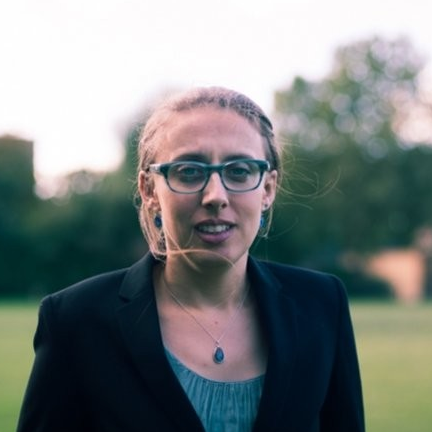
Dr Tendayi Bloom Our world is commonly understood as a world of citizens. Citizenship is often ideologically assumed to be desirable, enfranchising and rights-providing. This paper argues that this is a mischaracterisation and defends a more complex noncitizenist approach. It explores what this means for understandings of statelessness and for how statelessness is addressed in the global compact for migration in particular.
Tendayi Bloom is a Lecturer in Politics and International Studies at The Open University in the UK. She is author of Noncitizenism: Recognising Noncitizen Capabilities in a World of Citizens (Routledge, 2018) and editor most recently of Understanding Statelessness (Routledge, 2017, with K Tonkiss and P Cole).
-
Children of ‘cross border marriages’ and nationality in Can Tho, Mekong Delka, Vietnam
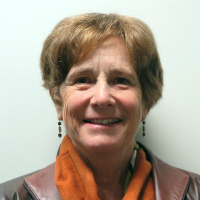
Professor Susan Kneebone This seminar presented the preliminary findings on data collection on the situation of bi-racial children born from international marriages between Vietnamese women and fathers in South Korea and Taiwan, who are returned to Vietnam following a failed marriage. This work is part of the larger ARC project ’Development of a Legal Framework for Regulation of International Marriage Migration’. A key concern of this data collection is to evaluate the rights of the children in light of the Convention on the Rights of the Child 1989, especially Articles 7 and 8, which contain provisions which confer independent rights of nationality and identity upon a child. The seminar will explain the laws and regulation of nationality in Vietnam, and the different legal and contextual situations of the children, many of whom are de facto statelessness in in Vietnam. We will examine the effectivenes
Susan presented this seminar along with PhD students, Brandais York and Sayomi Ariyawansa.
-
The lived experiences of children of transnational migrants in Lombok, Indonesia
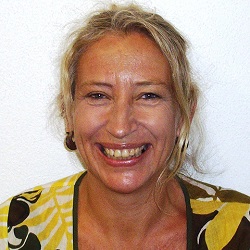
Dr Harriot Beazley In contemporary Indonesia economic forces have led to a significant rise in transnational labour, with an accompanying surge in family fragmentation. Policies on transnational labour migration, however, do not adequately consider the rights of children of migrant workers, including their right to an official identity and to protection in a family environment. This seminar discusses how the lack of accessibility to birth registration for children of migrant parents on the island of Lombok, Eastern Indonesia, has resulted in considerable risks for children left behind by their migrant parents. These risks include being unable to access entitlements associated with citizenship, being regarded as de facto stateless, and being exposed to numerous child protection issues while their parents are overseas. Drawing on the results of child-focussed research with children and young people in rural Lombok the paper reveals children’s lived experiences while their parents are away, and the deep feelings they articulate about their parents’ sustained absence. A prominent issue that emerged from the research was how children of migrants are entangled in a multigenerational pattern of undocumented and unsafe migration, leading to inter-generational statelessness. Some children described how they felt they were in some sort of limbo, waiting for something to happen, which included waiting until they were old enough to migrate themselves. By concentrating on children’s own views and experiences, the paper contributes to current debates about the implications of migration and statelessness in the Southeast Asia region.
Dr Harriot Beazley is a human geographer and community development practitioner with a passion for rightsbased research with children and young people. She is Program Coordinator (International Development) and Senior Lecturer (Human Geography) at the University of the Sunshine Coast, Australia. Harriot’s research interests are directed towards childfocussed participatory research in Southeast Asia, especially Indonesia. Her PhD (ANU) research was ethnographic research on the geographies and identities of street children in Indonesia. Since then she has consulted as a technical advisor to AusAID, UNICEF, DEFRA (UK), Save the Children and DFAT on a variety of child protection, social inclusion and gender issues. Harriot has conducted research and published widely on street children in Indonesia and Cambodia, the physical and emotional punishment of children in Indonesia, Vietnam and Cambodia, the commercial sexual exploitation of children in Indonesia, children’s experiences in orphanages after the tsunami in Aceh, children in prison in Indonesia, and the impact of transnational migration on children in Lombok, Indonesia. Harriot is a member of the Research Forum of the International Consortium for Street Children, and is Commissioning Editor for the Journal Children's Geographies.
-
Is Mr Pham a Vietnamese national? Citizenship deprivation and foreign nationality law in municipal courts

Dr Rayner Thwaites In Pham (2015), the United Kingdom Supreme Court decided that Mr Pham was, as a matter of Vietnamese law, a Vietnamese national. This conclusion was in conflict with the position of the Vietnamese authorities, who did not accept that he was. This divergence as to the content of municipal Vietnamese nationality law – between the institutions of the state of nationality and those of a foreign state – raises in dramatic form questions concerning the treatment of foreign nationality law in municipal courts.
Different conclusions were reached not only by the British and Vietnamese authorities, but by the relevant adjudicative bodies in the United Kingdom. The British litigation saw decisions that Mr Pham was not a Vietnamese national, and decisions that he was. These different conclusions arose from differences of interpretive approach between the relevant courts and tribunals. The interpretive differences were in turn informed by different readings of relevant international law materials, centrally guidance on statelessness provided by United Nations High Commissioner for Refugees.
This seminar will analyse the different interpretive approaches employed in the Pham litigation, grounded in British public law and applied to both Vietnamese and international law. The context for this analysis is twofold: the common law tradition with regard to the treatment of foreign nationality law and the relevant international law debates on statelessness.
Dr Rayner Thwaites is a Senior Lecturer in Public and Administrative Law at the University of Sydney and an Australian Research Council (ARC) Discovery Early Career Researcher. His ARC grant project is titled “Conditional Citizenship: Revocation’s Implications for Australians” and is comparative study of citizenship deprivation, focusing on Australia, Canada, New Zealand and the United Kingdom. He is the author of the GLOBALCIT Report on Citizenship Law: Australia and of The Liberty of Noncitizens: Indefinite Detention in Commonwealth Countries (Hart Publishing, 2014), among other publications. His most recent paper accepted for publication, coauthored with Assoc Prof Andrew Edgar, is “Implementing Treaties in Domestic Law: Translation, Enforcement and Administrative law” in the Melbourne Journal of International Law (forthcoming). He has an SJD from the University of Toronto.
-
“Applicants will need to demonstrate their integration into the Australian community” – proposed citizenship changes and refugees/stateless persons
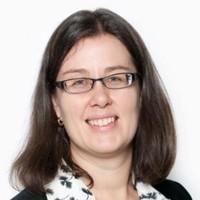
Dr Heli Askola According to the Federal Government’s proposed 2017 citizenship package, which will be re-introduced in 2018, applicants for citizenship by conferral would be required to show that they have ‘integrated into the Australian community’. This lecture examines the idea of integration requirements, using evidence from other jurisdictions to sketch out the meaning and scope of the concept. It analyses the background for the proposed changes and examines their possible consequences, especially for refugees/stateless persons.
Dr Heli Askola is Associate Professor at the Faculty of Law, Monash University. Her research interests include comparative immigration and citizenship policy; labour and sexual exploitation of migrants, including trafficking in human beings; and freedom of movement and migration in the EU. She has published widely in these areas. Her publications include Citizenship and Demographic Change (Cambridge University Press, 2016) and Legal Responses to Trafficking in Women for Sexual Exploitation in the European Union (Hart Publishing, 2007).
-
Statelessness and citizenship in Kenya
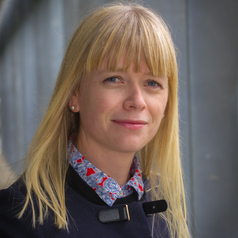
Dr Samantha Balaton-Chrimes Statelessness as a legal and political problem has attracted increasing attention from scholars and international advocacy organisations in recent years. This attention has predominantly focused on the legal aspects of statelessness, and has generally held the acquisition of citizenship documentation as the primary goal in remedying citizenship deprivation.
This talk explores the merits of this focus through a case study of the Nubians of Kenya, widely considered stateless until recently. The talk connects the focus on citizenship as documented status to a liberal conception of citizenship, identifying the ways in which this approach is helpful – that is, as a means of pursuing legal status and possession of individual rights.
Dr Balaton-Chrimes will also explore the more important ways in which a liberal conception of citizenship falls short of accounting for the Nubians’ citizenship problems by neglecting the more collective dimensions of citizenship practice and recognition. In particular, she will discuss the significance for citizenship of the Nubians’ 2017 acquisition of communal title deed for 288 acres of Kibra, an informal settlement in the middle of Nairobi.
Dr Sam Balaton-Chrimes is a lecturer in International Studies at Deakin University. Her research is concerned with enduring political questions about how difference is negotiated in contexts of power asymmetries. Her work is interdisciplinary in nature, engaging political theory, anthropology and development studies. Sam currently works on an ARC Discovery Indigenous Project with Dr Victoria Stead and Prof Yin Paradies on the politics of recognition in postcolonial contexts. Her component of this project examines forms of relationality between development workers and development recipients in Kenya. She also works with the Nubian community in Nairobi, Kenya, on issues affecting their land rights and on their aspirations to develop their land in Kibra. Finally, Sam also works in Odisha, India with communities who reject industrial capitalist modes of development. Her 2015 book, Ethnicity, Democracy and Citizenship in Africa: Marginalization of Nubians in Kenya explores the relationship between citizenship and ethnic difference in Kenya, and generates important insights into not only the risks, but also the possibilities of a relationship between ethnicity and democracy that is of broad, global relevance. Sam is also Co-Director of the Critical Development Studies Network.
-
Entanglements: the formal and informal education pathways of stateless Shan youth in Northern Thailand.
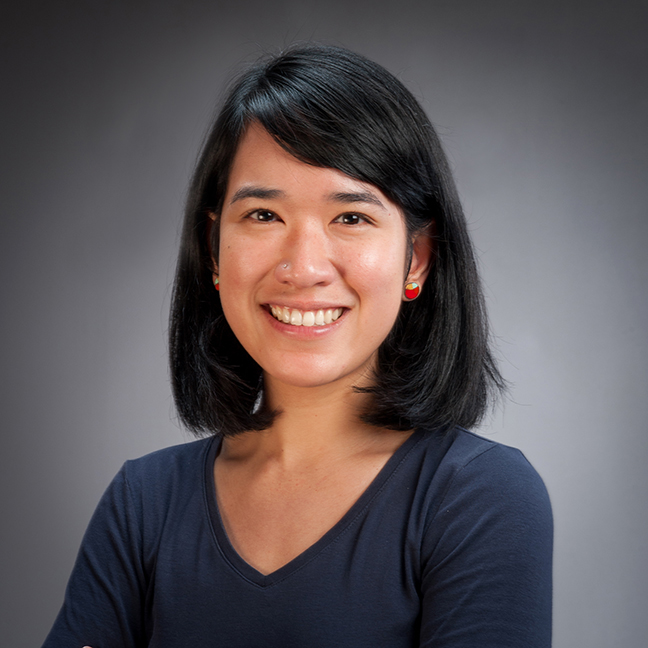
Janepicha Cheva-Isarakul Since 2005, a right to education has been extended to the non-citizen “Others” in Thailand. The recently amended Thai citizenship laws lists tertiary education as one of the citizenship criteria for those born in Thailand to non-Thai parents, further cementing higher education as a beacon of hope, a gateway for upward social mobility and a possibility of inclusion for stateless and migrant youth. However, a spotlight on formal education alone does not offer sufficient insights into the lived experience of youth, who use the informal system as a bridge for their educational journey. Neither does it recognise that the history of informal migrant education offered by civil society actors long before the involvement of the Thai state.
This presentation empirically examines the entanglements between the formal and informal educational systems offered to stateless Shan youth in Chiang Mai by various state and non-state actors. I examine the dynamics within the migrant education platform, where these actors constantly seek to defend their space, negotiate their agendas, and at times collaborate. I argue that the boundaries between the formal and informal education are more fluid and permeable than the official state discourse. By documenting how stateless Shan youth navigate between the various formal and informal educational systems to forge their future, the presentation provides important empirical contribution to understanding not only stateless youth’s educational pathways, but also their hopes, agency, and identity (re)construction process as they seek those pathways.
Janepicha Cheva-Isarakul is a Ph.D. candidate and Teaching Fellow in Anthropology at Victoria University of Wellington, New Zealand. Her Ph.D. ethnographic research explores lifeworlds and everyday experience of stateless youth in Chiang Mai, Thailand. Janepicha holds an M.A. in Development Studies from the Graduate Institute of International and Development Studies in Geneva, Switzerland. Janepicha also has had extensive experience working in the international development sector with various organizations including International Organization for Migration (IOM), Sasin Institute for Global Affairs, Oxfam Great Britain, Ashoka Foundation, ActionAid (Thailand) and the Life Skills Development Foundationbroad, global relevance. Sam is also Co-Director of the Critical Development Studies Network.